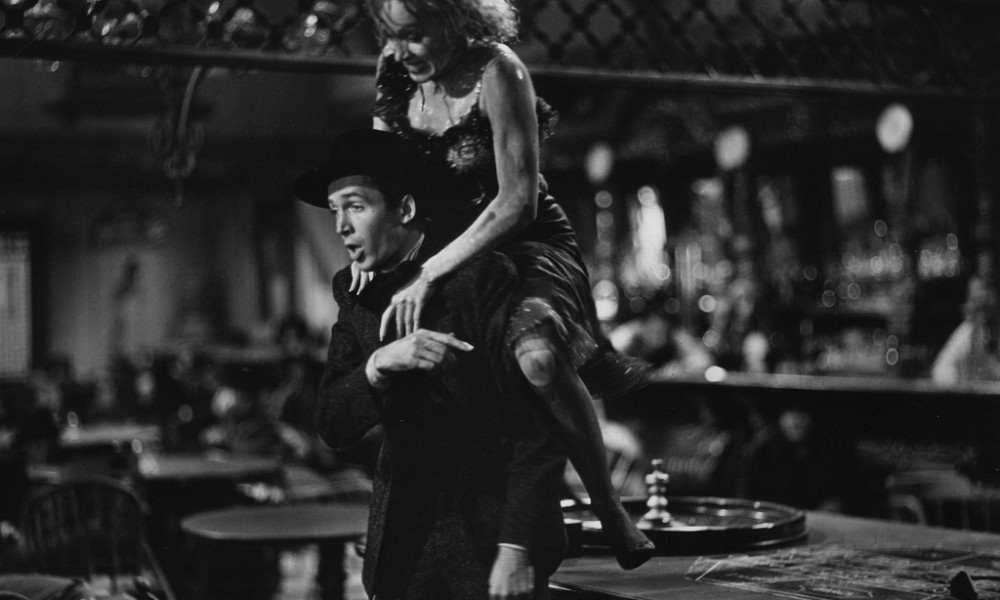Classic western famous for a number of reasons – firstly, at its core the protagonist Destry (James Stewart) is called into the remote, fictional town of Bottleneck as deputy Sheriff and elects to try and enforce justice without the use of guns, indeed he doesn’t even carry any on him, and secondly the movie features what must be one of the longest, if not THE longest, catfight in cinematic history (excluding porn of course) between the legendary Marlene Dietrich and Una Merkel – a fight extended when Jimmy Stewart gets involved (pictured above – the two famously embarked on an affair whilst on set, and it’s difficult to imagine the passionate fight scenes didn’t play a pivotal role).
What brings Destry there in the first place is the murder of the previous sheriff – something nobody in town wants to talk about or acknowledge lest they face repercussions from the gang operating out of The Last Chance Saloon (there were multiple locales carrying this name throughout the Old West, originally ones that offered the last opportunity to imbibe before heading out into the desert {and, presumably, the last chance to change your mind} before it became a generic metaphor). Duty bound, Destry sets out to get to the bottom of things and bring those responsible to justice, and just maybe play a little with the firekitten that is ‘Frenchy’ (Dietrich) along the way.
It’s a fascinating concept which will never get old, and the protagonist is properly tested – thrown into violent situations and forced to endure a ribald reception from the public for his stance but he, ahem, sticks to his guns and gracefully walks through it all with a self-assurance in himself and his belief, which eventually begins to win people over. He, then, has not only the philosophy but also the wherewithal that it will require a strategy and level of personal charisma in order for his approach to succeed.
Directed by George Marshall, who would remake the film again in 1954 (Much like Hitchcock did with ‘The Man Who Knew Too Much’ in 34 and 56), it’s impossible not to be curious as to how Destry is going to handle each situation and the overall feeling of the responses he provides is both satisfying and impressive, although there is a debate to be had regarding the finale and where it fits within the philosophy of the rest of the movie, and indeed you could argue it either makes, or breaks it …
